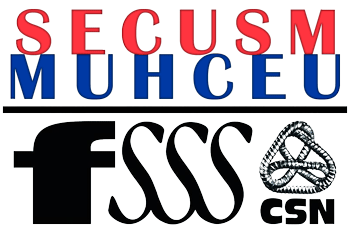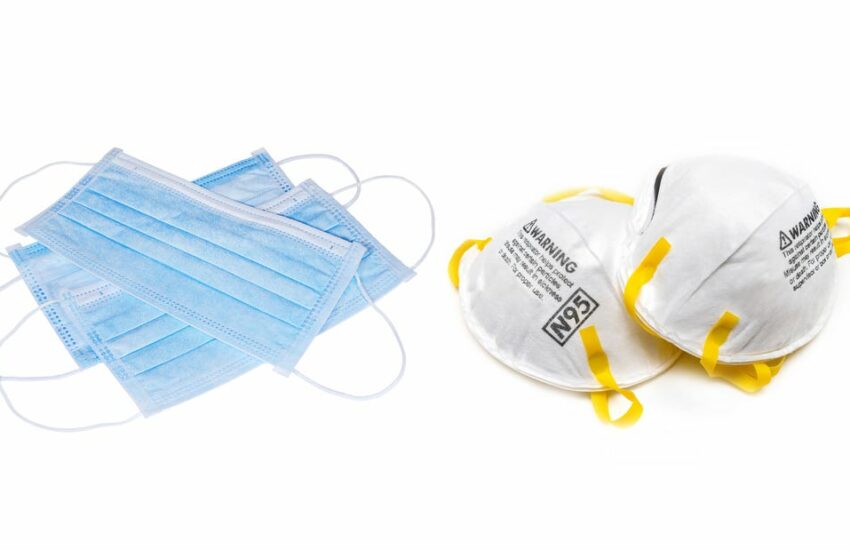Or the consequences of deficient policies, lack of prevention and equipment.
On November 4, the Gazette reported that an outbreak began Tuesday, November 2 on the 15th floor of the Montreal General Hospital. Our information is that it would have started on Wednesday, October 28th, 6 days earlier. As of today, at least 4 patients and 2 employees on the 15th floor and 3 supervisors of the MGH would be infected.
What happened between October 28 and November 2? No employees were tested before November 2. The employees, PABs and others, continued to work, rotating, working on the 15th floor, 17th floor, 4th floor and possibly elsewhere.
On Monday, November 2, more than 12 people who had been in contact with the infected people were tested and management told them to continue to report to work the following days… unless they had symptoms. This is unacceptable, in fact, the next day an employee was informed at the end of her shift that she tested positive for COVID.
It appears that all housekeeping supervisors at this hospital have been sent home to isolation and are being replaced by Glen supervisors.
This is serious, because this is not the first COVID outbreak in this location, unless we’re mistaken, it would be the third.
So what exactly have we learned in terms of prevention since the beginning of this pandemic?
1- Health care workers are still not systematically tested
2- Work teams, shifts and workplaces rotation continues, which makes Public Health’s work extremely complex, as it has to trace contacts made over several days, in several care units.
3- We continue to play Russian roulette telling people who have had contact with infected people to come to work if they have no symptoms. Unacceptable, when we know that there are asymptomatic people and, need we remind you, asymptomatic people can be contagious.
4- N-95 masks are still not provided in the yellow and hot zones.
5- Authorities continue to claim that only doctors, nurses and possibly PABs get close enough to patients to need N-95, although again, staff and managers in other job titles, such as housekeeping, are infected.
It’s not going well at all. We, the union, have requested as of April 1st that ALL HEALTH EMPLOYEES be tested once a week to avoid as much as possible having contaminated and asymptomatic employees contaminating colleagues and patients.
We were able to convince MUHC management in early April that, as far as the CHSLD Camille-Lefebvre is concerned, the MUHC should not use ministerial orders allowing them to move employees anywhere and anyhow they want.
Management agreed with us and staff rotation and movement has stopped at Camille-Lefebvre. NO infections occurred in this CHSLD during the first wave. This suggestion from the union should apply everywhere.
A radical and urgent shift
There is an urgent need for the government and MUHC management to take a radical turn in the management of this pandemic. We ask that the following measures be applied at the MUHC:
1- That all employees pass the N-95 leak test.
2- That all employees working in a yellow or red zone have the N95 mask in addition to gloves, a gown and a visor.
3- That N-95 masks be available in sufficient quantities at all times.
4- that each health care worker be tested once a week.
And, in order to stabilize the work teams
5- All PAB positions (all sites) are converted to full time positions on a voluntary basis.
6- for all category 2 and 3 job titles, no rotational positions and all positions on a single unit/site
To accomplish this, three postings are required
1. That regular part-time TPR positions to take full-time positions in their unit
2. That TPO positions – take full-time positions in a unit.
3. That students graduating from the PAB Accelerated Training Program – take the remaining full-time positions
4. All subsequent postings will be on positions in fixed units with no rotation and on one site.
It is this stabilization of staff that is vital to limiting the spread of the virus within the MUHC. Half measures can only prolong the second wave.
What is the government doing?
The government continues to adhere to its economic policy of relying on the private sector for materials and equipment. The pandemic has taught us that this puts us at high risk of being out of stock.
We need to establish a public policy to produce our own :
– Masks and all necessary personal protective equipment
– Swabs and reagents needed for testing
– Laboratory equipment and respirators
During the first wave, we saw countries banning or coming close to ban exports of these PPE and lab equipments. We saw countries diverting orders from other countries for their own benefit. We saw the ruthless jungle of the free market and we saw how we are at the mercy of decisions made by others.
In Quebec, in the 1960s ,we created a public company for the production of electricity: Hydro-Quebec, which has been and is a formidable engine of our economy. Today we must think about creating a public company for the production of PPE, laboratory equipment and respirators so that we are no longer at the mercy of decisions made by multinationals or countries that feel no obligation to put the interests of our population at the top of their priority list.
Since the beginning of the pandemic, we have had the impression that the government and the INSPQ have juggled between scientific criteria and the management of PPE shortages to determine the criteria that determine WHEN N-95 should be used and by WHOM.
We have the same impression regarding testing policies: WHO AND WHEN TO BE TESTED. Lack of reagents, laboratory equipment and respirators seem to have been more of a determining factor than scientific criterias.
Enough is enough, “shortage mode management” only puts people at risk, especially in the health care system. We need to plan now for our autonomy of essential products and equipment.
There is a sense of urgency, we must change things,
MUHCEU – Union Executive

